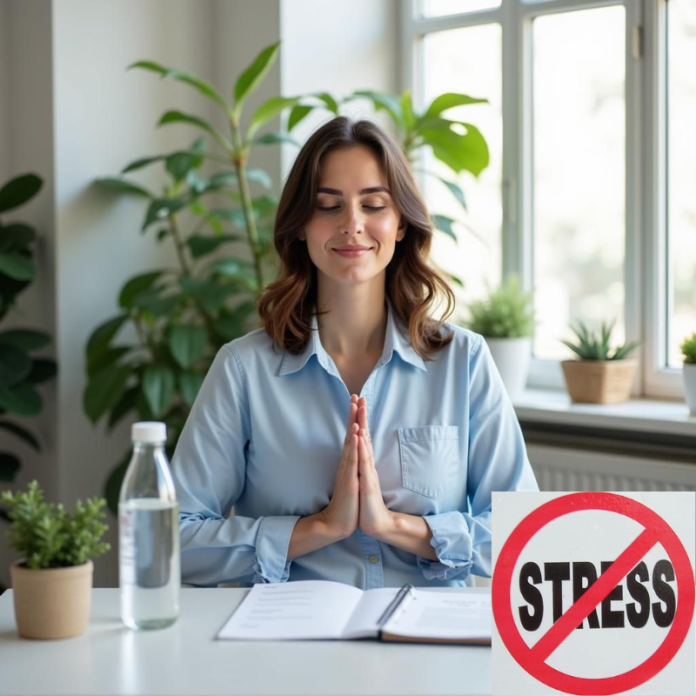Stress is an unavoidable part of modern life. Deadlines, responsibilities, unexpected problems, they all create pressure. But here’s the good news: you can manage stress in just 5 minutes using quick, science-backed techniques. Whether you are at work, home, or stuck in traffic, these methods can calm your body and mind instantly.
What is Stress?
Stress is your body’s natural response to challenges. When you face pressure, your brain releases hormones like cortisol and adrenaline. This triggers the “fight or flight” response your heart rate increases, muscles tense up, and mind races.
👉 Short-term stress can be motivating.
👉 But long-term stress leads to anxiety, burnout, headaches, insomnia, and even heart disease. That’s why quick stress management hacks are essential in daily life.
Why 5-Minute Stress Relief Works
Most people think stress management requires hours of meditation or therapy. In reality, even a few minutes of the right activity can:
-
Lower cortisol levels
-
Slow down heart rate
-
Improve focus instantly
-
Release calming endorphins
-
Shift negative thoughts
10 Ways to Manage Stress in 5 Minutes
1. Deep Breathing Exercise
One of the simplest yet most powerful stress relief techniques is deep breathing. When you take slow, deep breaths, your body receives a signal to relax and release tension. A popular method is the 4-6 breathing cycle: inhale deeply through the nose for 4 seconds, hold for 2 seconds, and slowly exhale through the mouth for 6 seconds. Repeating this cycle for 5 minutes helps reduce heart rate, relax tense muscles, and quiet the mind. This technique works especially well during work pressure, exam anxiety, or after a stressful conversation. According to a Harvard Medical School study, deep breathing helps regulate the stress response within minutes
2. Progressive Muscle Relaxation
Tense and release muscles starting from toes up to your head. This signals your brain to relax.
3. 5-Minute Meditation
Close your eyes, focus on your breath, and gently bring your attention back whenever your mind wanders.
4. Listen to Calming Music
Play soft instrumental or nature sounds. Studies show music lowers blood pressure and reduces anxiety.
5. Visualization Technique
Close your eyes and imagine a peaceful place beach, garden, mountains. Visualization tricks your brain into feeling calm.
6. Aromatherapy
Use lavender, chamomile, or peppermint essential oils. Just inhaling for a few minutes reduces tension.
7. Mini Walk or Stretching
Stand up, stretch your arms, roll your shoulders, or walk around. Movement improves blood flow and clears mental fog.
8. Journaling in 5 Minutes
Grab a notebook and write down:
-
What’s stressing you?
-
One thing you’re grateful for.
Writing releases mental pressure.
9. Practice the “5-4-3-2-1 Grounding” Method
Identify:
-
5 things you see
-
4 things you feel
-
3 things you hear
-
2 things you smell
-
1 thing you taste
This grounds your mind to the present moment.
10. Positive Affirmations
Repeat calming statements:
-
“I am in control.”
-
“This moment will pass.”
-
“I choose peace.”
Stress is a part of life, but managing it doesn’t have to be difficult. Everyone has at least 5 minutes during the day that they can dedicate to themselves. By practicing techniques like deep breathing, short meditation, visualization, or grounding exercises, you train your mind and body to respond to stress more calmly. These small habits not only bring instant peace but also protect you from long-term anxiety and burnout. So the next time you feel overwhelmed, pause for just 5 minutes, try one of these techniques, and notice how quickly you feel the difference.
FAQs About Stress Management
Q1: Can stress really be managed in 5 minutes?
Yes. Quick hacks like breathing and grounding reduce cortisol instantly.
Q2: Which is the fastest stress relief method?
Deep breathing is the most effective and universal.
Q3: Do I need tools for stress relief?
Not always. Most methods only require your breath, body, and attention.
Q4: Is short stress management enough for long-term anxiety?
No. It’s useful for instant relief but must be combined with lifestyle changes.


